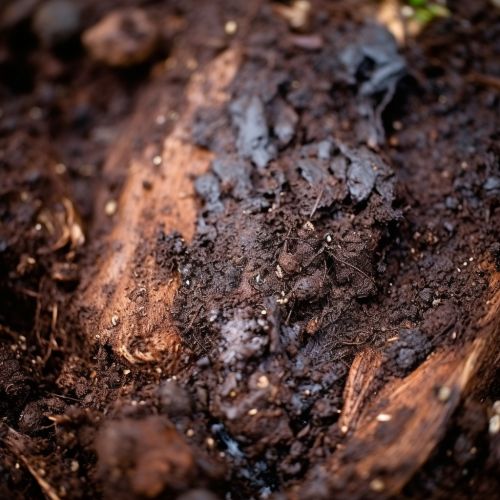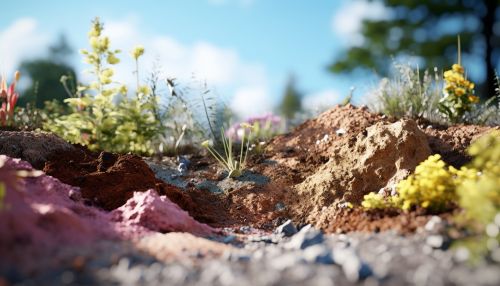Soil contamination
Introduction
Soil contamination, also known as soil pollution, is the presence of man-made chemicals or other alteration in the natural soil environment that can be harmful. This type of contamination typically arises from the rupture of underground storage tanks, application of pesticides, percolation of contaminated surface water to subsurface strata, oil and fuel dumping, leaching of wastes from landfills or direct discharge of industrial wastes to the soil. The most common chemicals involved are petroleum hydrocarbons, solvents, pesticides, lead and other heavy metals. This occurrence of this phenomenon is correlated with the degree of industrialization and intensity of chemical usage.


Causes of Soil Contamination
The main cause of soil contamination is the presence of man-made waste. Soil is naturally very good at "cleaning" itself, but many man-made contaminants are beyond the soil's capacity to treat. Some of the most significant sources of contamination include industrial activity and waste disposal.
Industrial Activity
Industrial activity has been the lead cause of soil contamination since the beginning of the industrial revolution in the 19th century. Many processes can lead to soil becoming contaminated, such as the improper disposal of waste, leaks from industrial facilities, or even accidents and spills. Industries most frequently associated with soil contamination include oil and gas production, coal and metal mining, and manufacturing.
Waste Disposal
Improper waste disposal can also lead to soil contamination. This can occur when waste is not properly disposed of or managed. For example, landfills can leak and cause contaminants to seep into the soil. Similarly, illegal dumping of waste can lead to contamination. This is particularly a problem in developing countries, where waste management infrastructure may be lacking.
Effects of Soil Contamination
Soil contamination can have a number of harmful effects on ecosystems, human health, and the economy.
Effects on Ecosystems
Soil contamination can have serious impacts on biodiversity. Many plants are unable to survive in contaminated soil, which can lead to a decrease in plant diversity. This can have a knock-on effect on the rest of the ecosystem, as animals and insects that rely on these plants for food and habitat can also be affected. Furthermore, soil contamination can lead to bioaccumulation and biomagnification, processes where contaminants accumulate in an organism at a rate greater than they can be broken down.
Effects on Human Health
Soil contamination can also have serious health impacts on humans. If humans ingest or come into contact with contaminated soil, they can be exposed to the harmful chemicals it contains. This can lead to a range of health problems, from skin rashes and nausea to more serious conditions like cancer or neurological disorders. Children are particularly vulnerable to these health impacts, as they are more likely to come into contact with soil while playing.
Economic Impact
Soil contamination can also have significant economic impacts. The cost of cleaning up contaminated soil can be very high, and often the polluter is not the one who bears this cost. Instead, it is often the community or the government that has to pay for these clean-up costs. Furthermore, contaminated soil can lead to a decrease in land value, as it may be unsuitable for agriculture or construction.
Prevention and Remediation
Preventing soil contamination is a crucial step in protecting our environment and health. This can be achieved through a variety of means, including better industrial practices, waste management, and legislation.
Better Industrial Practices
Industries can reduce their impact on the environment by adopting better practices. This can include things like using less harmful chemicals, managing waste properly, and regularly checking for leaks or spills. Many industries are now recognizing the importance of these practices, not only for the environment but also for their reputation and bottom line.
Waste Management
Proper waste management can also help prevent soil contamination. This includes properly disposing of waste, as well as recycling and composting where possible. Households can also play a role in this by reducing their waste and composting organic waste.
Legislation
Legislation plays a crucial role in preventing soil contamination. Governments can enforce regulations that require industries to manage their waste properly and to clean up any contamination they cause. They can also provide incentives for industries to adopt better practices.
Once soil contamination has occurred, it can be very difficult to clean up. This process is known as remediation. There are many different methods of soil remediation, including bioremediation, phytoremediation, and thermal desorption.
